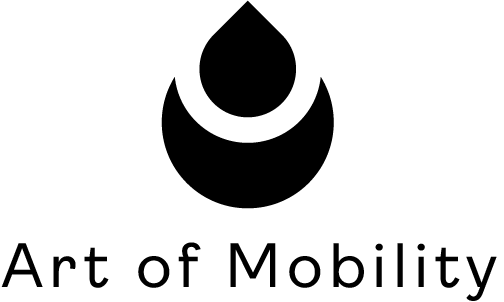
Menopause marks a significant transition in a woman’s life, characterized by the natural decline of reproductive hormones, bringing about a range of symptoms. Naturopathy offers a holistic approach to managing these symptoms, focusing on supporting the body’s natural ability to heal and maintain balance. This blog post aims to help you understand how naturopathy can help manage menopausal symptoms.
What is Menopause?
Menopause is the stage in a woman’s life where her reproductive hormones naturally start declining – eventually, this causes her to stop ovulating and her periods end. The gradual transitionary period to menopause is perimenopause and for some women, this phase can last for up to ten years before the onset of menopause.
- By definition, a woman is in menopause when it has been 12 months since her last menstrual period. For most women, this is usually between the ages of 45-55.
- Reduced production of important hormones such as estrogen and progesterone can cause symptoms such as night sweats, hot flashes, insomnia, migraines, vaginal dryness, joint pain, weight gain, and mood changes.
- As women transition into menopause, their risk of certain health issues increases significantly compared to men. When a woman is in menopause, her risk of cardiovascular disease, diabetes, hypercholesterolemia, and osteoporosis increases.
Understanding Naturopathy Approaches for Menopause
Naturopathic medicine offers a holistic approach to healthcare and aims to support the body’s natural ability to heal and maintain balance.
The exact treatment plan for managing menopausal symptoms will be unique to the individual but some approaches that naturopathic practitioners generally utilize include dietary and lifestyle changes, herbal medicine and supplements if needed, acupuncture, and mind-body-based practices like mindfulness and meditation.
If you’re considering naturopathy for menopause management, it is essential that you consult with a qualified practitioner who can tailor treatment plans to your individual needs and medical history.
Managing Menopausal Symptoms: Diet and Lifestyle Changes
Menopause can come with a number of physical symptoms which can greatly impact your quality of life. As hormones start fluctuating, you may experience hot flashes and night sweats, among other symptoms. Diet, lifestyle, and environmental factors play an important role in managing these symptoms.
- Diet: Your nutrition has a major effect on menopause symptoms. Following a Mediterranean-style diet rich in antioxidants, fibre, and healthy fats can help reduce the occurrence of uncomfortable symptoms. Consuming foods and drinks that are more cooling in nature can help deal with flare-ups. Additionally, including nutrient-dense foods rich in phytoestrogens such as soy, flaxseeds, and legumes can also help alleviate symptoms.
- Sleeping Habits: It is important to address sleep hygiene by keeping the sleeping environment cool, and using cooling pillows. Ensuring a comfortable and consistent sleep schedule can greatly improve sleep quality and help mitigate night sweats.
- Lifestyle Factors: Alcohol and stress can worsen the intensity and frequency of hot flashes and night sweats. Limiting alcohol consumption and adopting stress management techniques such as meditation can be highly beneficial.
- Herbal Remedies: Herbal remedies have been used for centuries to support women transitioning into menopause. Herbs such as black cohosh, dong quai, red clover, and sage help balance hormones and reduce the frequency and intensity of hot flashes, mood swings, and sleep disturbances.
- Exercise: Including resistance training and weight-bearing exercises in your treatment plan is important for reducing the risk of osteoporosis. Regular physical activity not only strengthens bones but also helps maintain muscle mass, improves balance, and enhances overall cardiovascular health.
- Cognitive Support: With age and the change in hormone levels, you are at a greater risk of memory deterioration. Your naturopathic doctor may recommend cognitive-supporting supplements and herbs such as bacopa monnieri, b-vitamins, or ginkgo biloba.
It is important to work with a qualified healthcare provider who can help you ensure that symptoms like night sweats are not associated with other health-related concerns like hyperthyroidism, cancer, or an infection.
Naturopathy for Menopause: Addressing Hormonal Imbalances
Hormones are chemical messengers that allow for proper communication between the brain and various parts of the body. Female reproductive hormones have a profound effect on mood, energy levels, sleep, weight, and libido. Menopause causes a hormonal imbalance, leading to a wide variety of symptoms.
Naturopathic Doctors focus on restoring hormonal balance to help alleviate menopausal symptoms. When undergoing an initial intake with an ND, they will discuss hormone testing in order to identify imbalances and create a tailored treatment plan to address your concerns. For example, bones become weaker with age and due to the drop in estrogen levels, putting women at higher risk of osteoporosis. Your naturopathic doctor might recommend getting your Vitamin D levels tested and supplementing bone-supporting minerals such as calcium, boron, and magnesium.
Treatment may also include a combination of supplements, herbs, nutritional and lifestyle support. Natural hormone replacement using bio-identical hormones may be recommended. This can supplement hormone levels to ease unwanted symptoms such as mood swings, weight gain, insomnia, dry skin, vaginal dryness, night sweats, and memory issues.
Naturopathy for Menopause: What to Expect
Naturopathic Doctors offer individualized care by focusing on the whole person and helping you understand the unique symptoms impacting you during perimenopause and menopause.
The initial visit with an ND will include a thorough work-up looking at stress, diet, lifestyle, and sleep hygiene. Specific recommendations can then be made to help manage your physical, mental, and emotional symptoms.
Blood work might also be recommended to assess your health risks for diabetes and cardiovascular disease. Additional testing may be recommended to get a better understanding of your hormone levels and further treatment recommendations may be made to help with hormonal balancing.
Support and Care for a Healthier You
Menopause is a natural transition in a woman’s life and one that comes with a variety of challenges. However, a lot can be done to mitigate the unwanted symptoms associated with menopause. Naturopathy adopts a holistic approach to managing menopause symptoms, allowing women to embrace the changes, and find relief from uncomfortable symptoms while also improving overall their health and well-being.
At Art of Mobility in Mississauga, our experienced Naturopathic Doctors are dedicated to providing you with the support and guidance needed to manage menopause effectively. Schedule an appointment with us today to discover how we can help you find relief and improve your quality of life.
